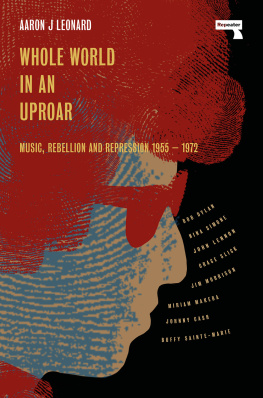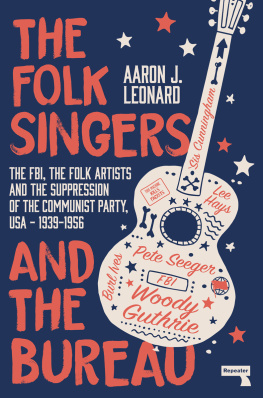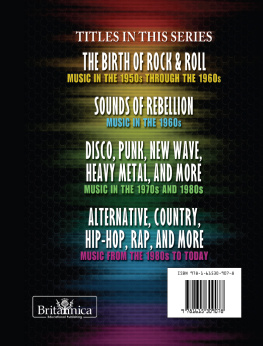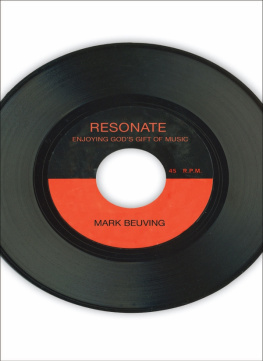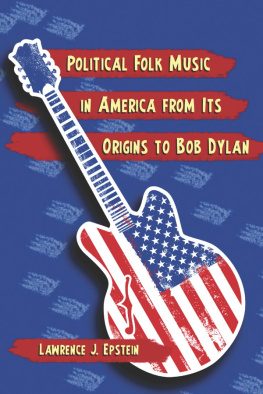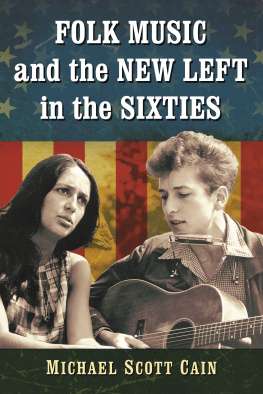
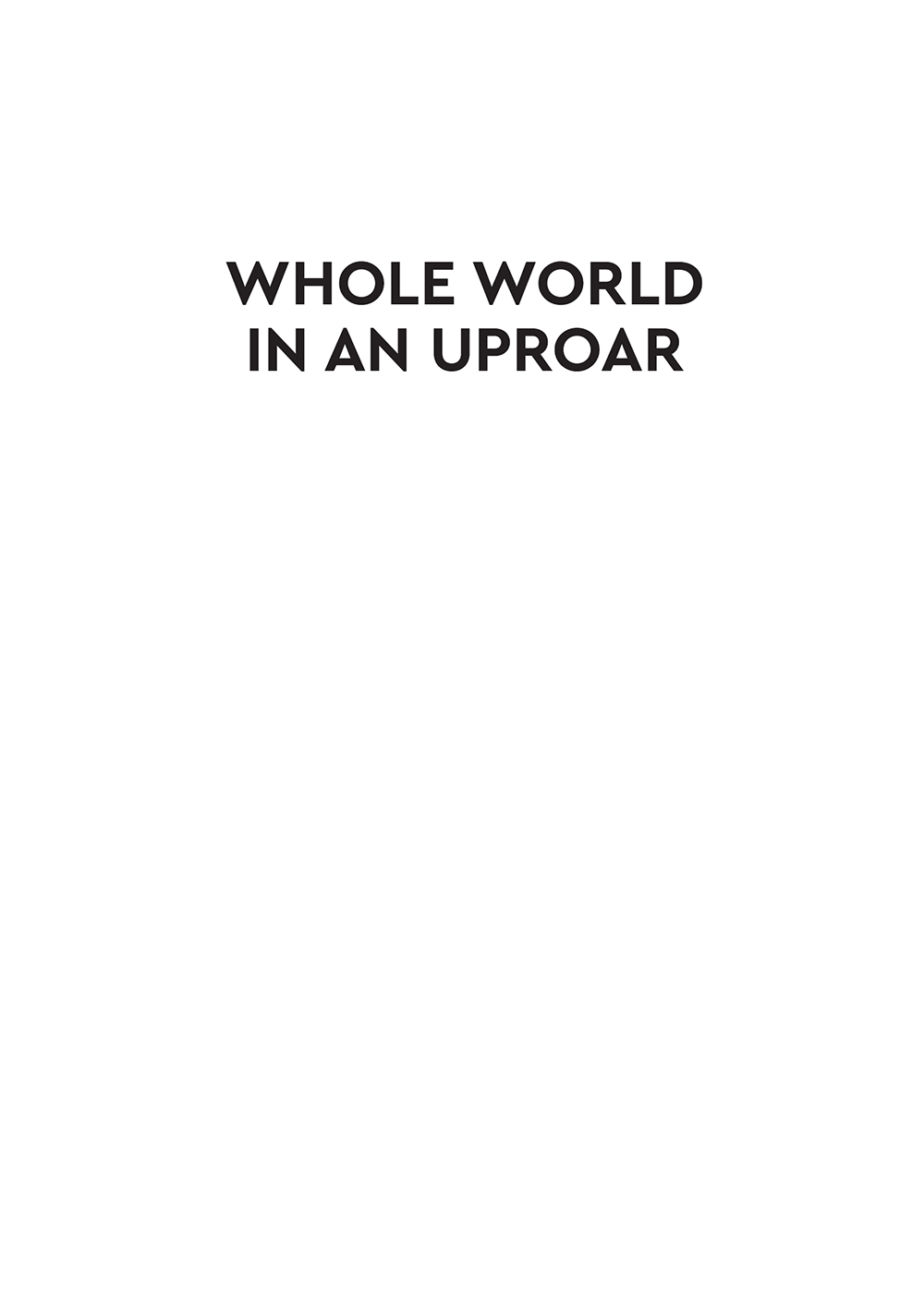

Published by Repeater Books
An imprint of Watkins Media Ltd
Unit 11 Shepperton House
89-93 Shepperton Road
London
N1 3DF
United Kingdom
www.repeaterbooks.com
A Repeater Books paperback original 2023
Distributed in the United States by Random House, Inc., New York.
Copyright Aaron J. Leonard 2023
Aaron J. Leonard asserts the moral right to be identified as the author of this work.
ISBN: 9781914420924
Ebook ISBN: 9781914420931
Sections of this book are drawn from work published previously on Truthout.org :
Newly Unearthed FBI File Exposes Targeting of Folk Singer Dave Van Ronk, Aaron J. Leonard, Truthout, July 8, 2018.
FBI Tracking of Bob Dylan and Suze Rotolo Foreshadowed Future Abuses, Aaron J. Leonard, Truthout , September 1, 2019.
All rights reserved. No part of this publication may be reproduced, stored in a retrieval system, or transmitted, in any form or by any means, electronic, mechanical, photocopying, recording or otherwise, without the prior permission of the publishers.
This book is sold subject to the condition that it shall not, by way of trade or otherwise, be lent, re-sold, hired out or otherwise circulated without the publishers prior consent in any form of binding or cover other than that in which it is published and without a similar condition including this condition being imposed on the subsequent purchaser.
Printed and bound in the United Kingdom by TJ International Ltd
d_r1
A fascinating counter-history of the 1960s music revolution through the eyes of the persecutors, paranoiacs and culture warriors who tried to stop it.
Dorian Lynskey, author of 33 Revolutions Per Minute:
A History of Protest Songs
Even Spiro Agnew acknowledged that mid-century artists werent conspiring to subvert unsuspecting Americans, but that didnt prevent powerful institutions from drawing a bead on them and their work. What happened when HUAC, the FBI, Jim Crow, corporate media outlets, drug warriors, the religious right, and even the Old Left tried to stop a freight train? Drawing on a broad range of sources, including FBI files, Whole World in an Uproar recounts that momentous story.
Peter Richardson, author of No Simple Highway:
A Cultural History of the Grateful Dead
The folk singers I knew and worked with in the 1960s assumed the government was keeping tabs on us, but we didnt know the extent of its oversight. Aaron Leonard integrates an amazing amount of research into a story that ranges from FBI surveillance of the Old Left (the Communist Party and the Trotskyist organizations) to the rock scene to the social dissension around the anti-Vietnam War and Black liberation movements. Whole World in an Uproar is a well-thought through, fascinating documentary about movements and people who were affected by oppressive societal actions.
Terri Thal, former manager of
Dave Van Ronk and Bob Dylan
For My Comrades Past & Present
CONTENTS
As can be seen in the title, this book covers the decade of the 1960s and the key years surrounding it. I do this in keeping with the historical concept of the long Sixties, where the basis and resolution for this extraordinary period extended beyond the calendar decade.
Abbreviations
| BPP | Black Panther Party |
| CORE | Congress of Racial Equality |
| CP/CPUSA | Communist Party USA |
| DNC | Democratic National Convention |
| ECLC | Emergency Civil Liberties Committee |
| FPCC | Fair Play for Cuba Committee |
| HUAC/HCUA | House Committee on Un-American Activities |
| IS | Internal Security FBI investigation |
| NAACP | National Association for the Advancement of Colored People |
| PLP/PLM | Progressive Labor Party / Progressive Labor Movement |
| SDS | Students for a Democratic Society |
| SI/ADEX | Security Index / Administrative Index (potential detention list kept by the FBI) |
| SNCC | Student Non-Violent Coordinating Committee |
| SCLC | Southern Christian Leadership Foundation |
| SWP | Socialist Workers Party |
| VVAW/WSO | Vietnam Veterans Against the War / Winter Soldier Organization |
| YIPPIE | Youth International Party |
PREFACE
Several years ago, I had an idea for a book to examine how the FBI targeted progressive and radical artists in the Sixties as part of a larger imperative to gain control of the social tumult of that period. At the time, the effort led to a dead-end. After undertaking initial research, I discovered the files to accomplish this either did not exist or would not be made available. So, I put the idea aside and went to work on The Folk Singers & the Bureau, with its focus on the left-wing folk singers and the FBI in the 1940s and 1950s. With that book behind me, I found myself again drawn toward the Sixties book, but was still confronted with the problem of the dearth of FBI material.
Then it occurred to me. Unlike with the partisan folk music artists of the Forties and early Fifties, who were grouped around the Communist Party USA (CPUSA), the radical and progressive artists of the Sixties emerged from the ashes of the old left. As such, they did not associate or identify with the CPUSA or any other hierarchical left-wing organization. Because of this, they were by and large not internal security targets of the FBI. That did not, however, mean they were not targets of repression. While not the purview of the FBI, they instead were confronted by forces embedded in the wider socio-political structure whether that be the television censor, immigration authority, intolerant Christian, scolding politician, right-wing musician, or hostile journalist. To tell that story, I needed to draw on not only any relevant FBI files, but also on the abundance of material from the media of the day, the extensive corpus of music journalism, and the ever-growing body of memoirs of the prime actors of the period.
In the end, this book turned out to be a different one from that originally conceived. It also marks a departure, to a degree, from my work so far, with its primary focus on the FBI and radicals in the last half of the twentieth century. Nonetheless, it tells a story I think needs telling. Not just of music and repression, but a version of the Sixties where rebellion and upheaval lie at the heart of events. To have passed through that time or in my case, to have come of age in those years is to have lived through a revolution of a kind. And while the debate continues as to its lasting significance, my hope is that this work will contribute to an understanding of an overlooked component operating in that cyclonic past.
Aaron J. Leonard
Spring 2022
INTRODUCTION
We have the power to shape the civilization that we want.
Lyndon Johnson, May 1964.
Look, the world is being turned upside down.
Mao Zedong, 1965.
Jim Morrison had something in mind when he took the stage in Miami in March 1969. Having consumed a fair amount of alcohol, he thought he would channel the provocative sensibilities of avant-garde art into the evenings show. His bandmate, drummer John Densmore, explained Morrisons state of mind:
Next page
